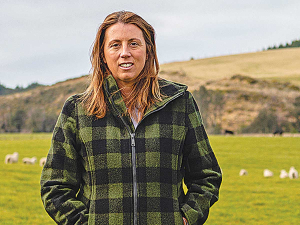Focusing on the real – rather than imagined – impact of such change is essential. This demands a robust approach to planning and budgeting: fundamental tools for getting attitudes right so sound decisions are made.
Farmers can be too quick to focus on movement in revenue prices and too slow to measure the impact on profit margin.
In buoyant times the industry often assumes higher milk prices will bring automatic boosts to profitability. My benchmarking analysis suggests higher milk prices often flow through to cost inflation as suppliers factor perceived higher returns into prices for feed, grazing, fertiliser and other inputs. This is often exaggerated by farmers competing for these resources.
Conversely, when revenue prices fall there can be a compensating decline in farm input costs. This can offer opportunity for proactive farming enterprises to negotiate more competitive deals and find areas where they can cut fat, not muscle, to protect profitability.
A weakness of many farming operations is that they don’t focus enough on profit margins. For example, the combined impact of favourable climate, feed inventories, reasonable stock values, lower input costs and declining interest rates will potentially reduce the impact of the current ‘headline’ change in farm incomes.
The primary drive during downturns must be to ensure the business is in the best possible position to capitalise when the inevitable recovery occurs. This is all about identifying the right things to cut and the right things to continue. Careful thought must be given to maintaining stock quality, fertility, pasture species, people and infrastructure so false economies are avoided.
Effective and timely budgeting is essential to achieve this. Ideally it should start with a sound business plan so the business owners and their advisors have a complete understanding of the key performance measures needed to deliver personal, business and career goals. This provides a dashboard to navigate by regardless of the changing business terrain.
Involving financiers and other stakeholders strengthens their confidence in the business and provides valuable feedback to enhance credibility of budget assumptions and likelihood of success.
It should be a business-as-usual process for every farming operation to break their longer term strategic plan into an annual plan. This is all about what needs to happen today to achieve long-term goals. If a strategic plan is about a destination, the annual plan tells you how quickly you are likely to get there.
I have for some years encouraged my clients to adopt this approach. All the enterprises I am involved in operate with constantly updated budgets for at least three years ahead.
The first is for the current season built on a rolling update of budget projections combined with actual results as each month passes. This generates a monthly forecast of how the operation will track and is a real plus for cost control, performance monitoring and tax planning.
The forecast for the following year maintains awareness of the medium-term outlook.
Copying this budget forward each year removes the hassle of having to start with a blank paper for each season. It’s simply a matter of rolling these two years forward and keeping close comparisons between them to ensure credibility.
The third year budget is a ‘status quo’ outlook. This measures likely returns based on realistic long term revenue and cost assumptions similar to those used by financiers to evaluate lending propositions.
A key advantage of ‘status quo’ budgets is that they can be easily refreshed to measure the impact of long term changes in trading outlook. They also enable quick assessment of new opportunity when growth opportunities or development propositions emerge.
Getting the annual plan signed off during the annual meeting of every farm business, big or small, has served my clients exceedingly well. Collaboration between farmers, their financiers and other professionals working with credible short and long-term plans results in greater confidence, gives everyone time to react and most of all ensures the owners have a clearer understanding of their position and speed of travel.
There may be tough times ahead but I am ever conscious that the best years often result from pressure to keep a business light on its feet. This is a positive beckoning those who embrace change and volatility.
• Kerry Ryan is a New Zealand based agribusiness consultant available for face-to-face or online for advice and ideas. Contact him at www.kerryryan.co.nz
















